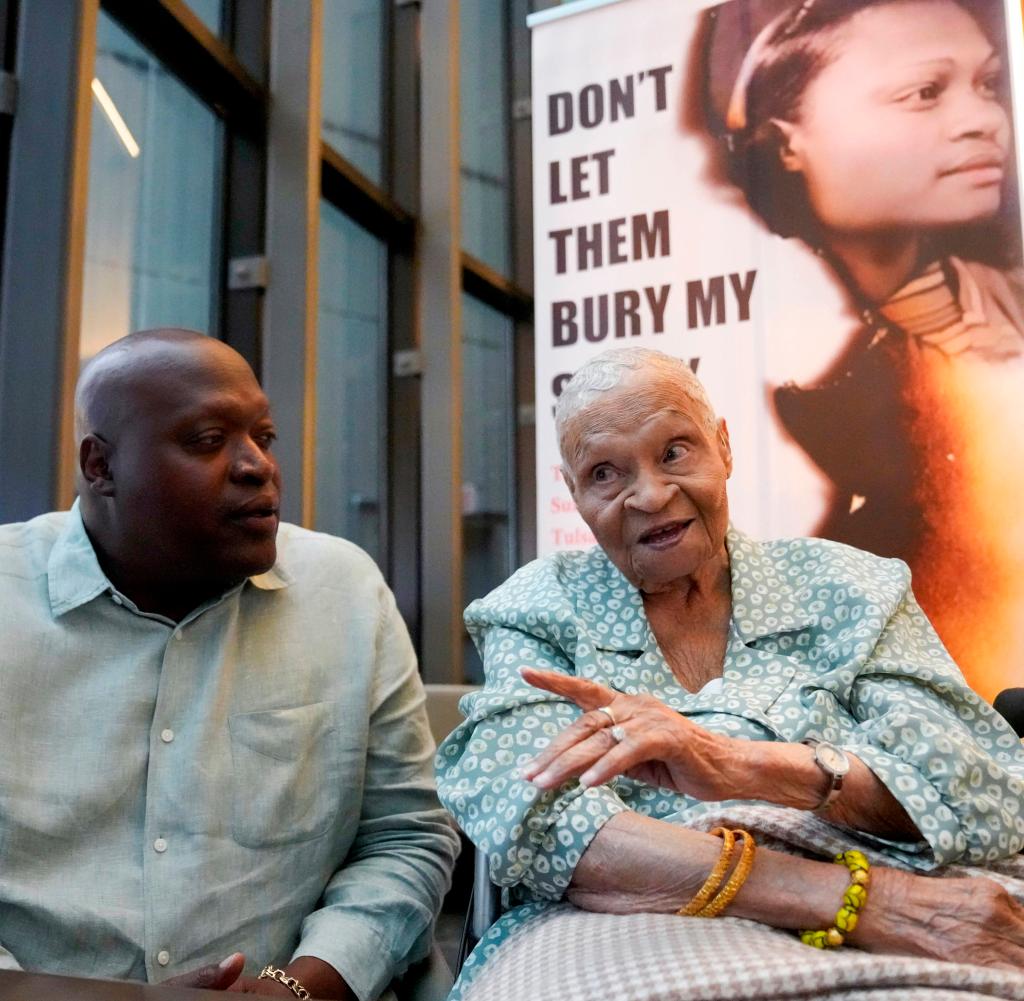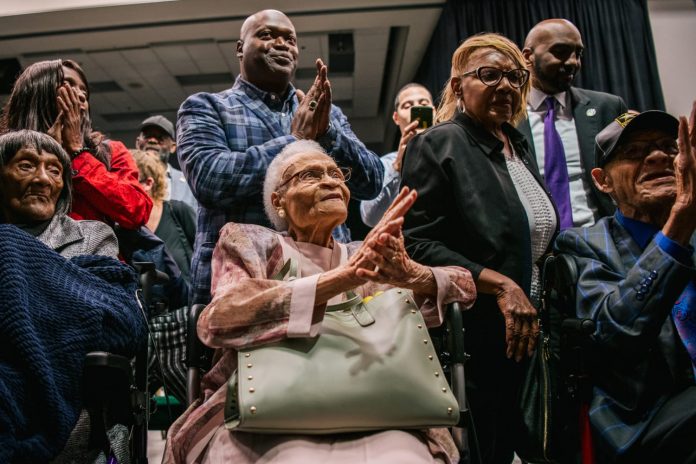

Viola Ford Fletcher, a survivor of the massacre, with her grandson during an interview in June
Source: AP/Mary Altaffer
EAn Oklahoma judge has dismissed a lawsuit seeking reparations for survivors and descendants of victims of a 1921 racially motivated massacre. Back then, a white mob in the city of Tulsa killed hundreds of black residents and destroyed what was then America’s most prosperous black business district. The lawsuit was filed by three survivors of the 2020 attack; all are now over 100 years old.
According to her lawyer, the lawsuit was her last chance to be heard in her lifetime. The plaintiffs – two women and one man – are seeking redress from the city and others for the destruction of the black neighborhood of Greenwood.
District Judge Caroline Wall dismissed the lawsuit Friday. In a brief justification, she referred to arguments from the city, the regional chamber of commerce and other state and local authorities. Last year, Wall denied their motion to dismiss the lawsuit.
Tulsa Mayor GT Bynum said in a response the city does not yet have the court’s full decision. The city remains committed to finding the graves of victims of the massacre, supporting economic development in Greenwood County, educating future generations about “the worst event in our community’s history,” and working to ensure that every person lives the have an equal chance at a wonderful life, the mayor said. A lawyer for the plaintiffs did not initially respond to requests for comment on Sunday.
The victims were never compensated
The lawsuit was filed in 2020 under a public endangerment law. The massacre has had an impact on the city to this day, it was said to justify it. The basis of the lawsuit was disputed between the plaintiffs and the defendants. A Chamber of Commerce lawyer had said the massacre was horrible but happened 100 years ago. There is no longer any danger to society.
In the so-called Tulsa Race Massacre, a white mob stormed the city’s Greenwood district. The crowd looted and set fire to shops and homes, killing hundreds of residents. Thousands more were left homeless. The victims were never compensated, neither by the city nor by insurance companies.
According to the lawsuit, the city actively thwarted survivors’ efforts to rebuild. The lawsuit states that the massacre ultimately led to racially motivated and economic inequalities that still exist today. Among other things, it called for a detailed listing of the damage caused and the assets destroyed, as well as the construction of a hospital and the establishment of a compensation fund for victims.


